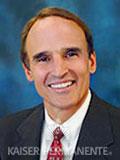As healthcare professionals, it’s easy for physicians and other caregivers to adopt a “Father Knows Best” attitude with patients. We’ve invested years of schooling and practice in our profession, and our knowledge is extensive. However, many of us forget that our patients have been living with their health problems for years, and they know what has worked and what has not worked in the past. When it comes to their bodies, our patients should be regarded as experts as well.
As healthcare professionals, it’s easy for physicians and other caregivers to adopt a “Father Knows Best” attitude with patients. We’ve invested years of schooling and practice in our profession, and our knowledge is extensive. However, many of us forget that our patients have been living with their health problems for years, and they know what has worked and what has not worked in the past. When it comes to their bodies, our patients should be regarded as experts as well.
In order to benefit from our patients’ knowledge, it is essential that we listen as much as we speak. Healthcare includes much more than diagnoses and procedures – it also involves the personalities, beliefs, and circumstances of each person we see.
What Isn’t Being Said
Too often, caregivers don’t take into account the educational levels of their patients. How we approach a high school graduate should vary significantly from how we approach a college graduate. Treating each group differently isn’t passing judgment upon their abilities. Instead, it’s ensuring that we’re discussing their issues from the same perspective and with a similar understanding.
A second aspect we frequently overlook is the cultural or religious background of the patient and his family. These differences can result in unexpected misconceptions with regards to treatment options. For example, many African-Americans don’t trust our healthcare system because of widely publicized past abuses. Too often, they fear that caregivers are experimenting on them. Other ethnic groups have low pain thresholds and are anxious when they arrive for treatment. Still others have stoic attitudes and refuse to acknowledge their pain. Knowing that these differences exist means we can’t treat each patient identically. We need to stay aware of these differences and tailor our approach accordingly.
How to Listen to Patients for Their Benefit
One of the best ways to encourage communication is to consider the patient and her family as part of your care team. Include them on work rounds whenever possible, and present all issues and concerns in their presence. Be friendly and open, and always call them by their names. On each occasion, make a point to introduce yourself and remind them of your role on the healthcare team. This prevents patients from feeling like they’re hearing only part of the story, and they’ll be more likely to ask questions when something isn’t clear.
Always solicit their input when you’re recommending a test or therapy whose benefit is not clear-cut. By explaining both the benefits and potential complications of the procedure, you can allow the patient and her family to make more informed decisions. The choices they make can dramatically impact their lives, and it’s up to us to respect the power that information can give them.
How to Listen to Your Staff for Your Patients’ Benefit
Seamless, open communication between specialists is critical to ensure that care plans are coordinated. This is particularly important in tertiary-care hospitals that treat patients with complex illnesses. For example, I recently cared for a young woman who was suffering severe blood loss from her gastrointestinal tract. She came to the hospital after passing over 4 units of blood – nearly two-thirds of her total blood volume. The identification of the site of bleeding required the input of a gastroenterologist, radiologists, and a colonic surgeon.
As the internist in charge of her hospitalization, I repeatedly paged each of these groups to encourage them to share their opinions with each other in order to better coordinate her care. Initially, they balked, but after I encouraged them to focus on the needs of this very ill patient, all three groups started talking. Thanks to this team approach, we were able to identify and surgically repair the leaking vessel; she was cured. Alone, none of us could have achieved this, but together, we were able to resolve her problem by listening to one another.
How to Maintain a Relationship After
It’s all too common for patients who are discharged from our hospitals to become “lost to follow-up.” Ideally, each clinic should have a coordinator who calls each patient to assure that the patient understands his instructions and has secured the recommended appointments for ongoing management of his illness. Many patients require appointments with different specialists, and this can be confusing.
To guard against the unexpected, I always give my patients my card and my cell number. I ask them to call if they have any problems or concerns, and approximately 10% of my patients do call. In every case, their concerns have been important. One time, a young woman I treated was admitted with jaundice; her yellow eyes were caused by a gallstone blocking her bile duct, while caused a build-up of bilirubin in her blood. Her stone passed in the hospital, but she still had a gallbladder full of stones. In order to prevent a recurrence, she needed a gallbladder resection. When she called to schedule her surgery, the secretary refused to set an appointment because the patient’s insurance was insufficient. The patient called me, and I quickly intervened to prevent her from going through another bout of jaundice.
Physicians and other caregivers should understand that our patients often will have difficulty navigating our complex, and rarely patient-friendly, system. Each of us needs to be willing to assist them in their time of need by lending them an ear to listen, and a number to reach us after. Our obligation to our patients doesn’t end when they walk out our door, and nor should our relationship.
Dr. Fred Southwick is a Professor of Medicine at the University of Florida. He is the Project Manager of New Quality and Safety Initiatives for UF & Shands Health System and is the author of the upcoming book Critically Ill: A 5 Point Plan to Cure Healthcare Delivery.






